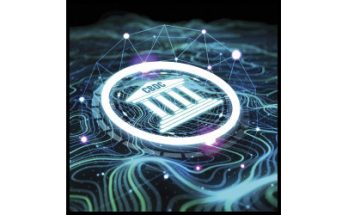The Cuckoo’s Egg: Tracking a Spy Through the Maze of Computer Espionage
By Cliff Stoll
Published by Gallery Books, 1989
ISBN 978-1-4165-0778-9
“An astronomer-turned-sleuth traces a German trespasser on our military networks, who slipped through operating system security holes and browsed through sensitive databases. Was it espionage?”
Before the Internet became widely known as a global tool for terrorists, one perceptive U.S. citizen recognized its ominous potential. Armed with clear evidence of computer espionage, he began a highly personal quest to expose a hidden network of spies that threatened national security. But would the authorities back him up? Cliff Stoll’s dramatic firsthand account is “a computer-age detective story, instantly fascinating [and] astonishingly gripping” (Smithsonian).
Cliff Stoll was an astronomer turned systems manager at Lawrence Berkeley Lab when a 75-cent accounting error alerted him to the presence of an unauthorized user on his system. The hacker’s code name was “Hunter” — a mysterious invader who managed to break into U.S. computer systems and steal sensitive military and security information. Stoll began a one-man hunt of his own: spying on the spy. It was a dangerous game of deception, broken codes, satellites, and missile bases — a one-man sting operation that finally gained the attention of the CIA…and ultimately trapped an international spy ring fueled by cash, cocaine, and the KGB.
Read More and Buy the Book »
(Please support your local bookseller.)
About the Author:
Clifford Paul “Cliff” Stoll (born June 4, 1950) is an American astronomer, author and teacher. He is best known for his investigation in 1986, while working as a systems administrator at the Lawrence Berkeley National Laboratory, that led to the capture of hacker Markus Hess, and for Stoll’s subsequent book The Cuckoo’s Egg, in which he details the investigation. Stoll has written three books, articles in the non-specialist press (e.g., in Scientific American) on the Curta mechanical calculator and the slide rule, and is a frequent contributor to the mathematics YouTube channel Numberphile.
Cliff Stoll attended Hutchinson Central Technical High School in Buffalo, New York. He earned a B.S. in Astronomy in 1973 from the University at Buffalo (SUNY). While studying for his undergraduate degree at SUNY Buffalo, Stoll worked in the university’s electronic music laboratory and was mentored by Robert Moog. He received his PhD from University of Arizona in 1980.
In 1986, while employed as a systems administrator at the Lawrence Berkeley National Laboratory, Stoll investigated a tenacious hacker—later identified as KGB recruit Markus Hess—who stole passwords, pirated multiple computer accounts, and attempted to breach US military security. After identifying the intrusion, Stoll set up a honeypot for Hess, eventually tracking him down and passing details to the authorities. It is recognized as one of the first examples of digital forensics. At the time, gaining cooperation from law enforcement was a challenge due to the relatively new nature of the crime.[3] He described the events of his investigation in The Cuckoo’s Egg: Tracking a Spy Through the Maze of Computer Espionage and the paper “Stalking the Wily Hacker”.[4] Stoll’s book was later chronicled in an episode of WGBH’s NOVA titled “The KGB, the Computer, and Me”, which aired on PBS stations in 1990.[5][6]
—Wikipedia, “Clifford Stoll”
See also:
Articles by or about Cliff Stoll:
- “Stalking the wily hacker” by Clifford Stoll. Communications of the ACM, May 1988, Vol. 31 No. 5, Pages 484-497 (Requires CACM subscription or article purchase. Need access to: https://dl.acm.org/doi/pdf/10.1145/42411.42412)
- “Meet the Mad Scientist Who Wrote the Book on How to Hunt Hackers: Thirty years ago, Cliff Stoll published The Cuckoo’s Egg, a book about his cat-and-mouse game with a KGB-sponsored hacker. Today, the internet is a far darker place—and Stoll has become a cybersecurity icon.”
- “West Germans Raid Spy Ring That Violated U.S. Computers” by John Markoff. The New York Times. March 3, 1989
Interviews & Presentations:
- “The Cuckoo’s Egg” C-SPAN Booknotes, October 13, 1989. Clifford Stoll enthusiastically discussed his discovery and tracking of a West German computer spy who “broke” into his institution’s computer network to access other networks throughout the U.S. In [The Cuckoo’s Egg: Tracking a Spy Through the Maze of Computer Espionage], Stoll details the story involving Markus Hess, who sold the stolen information from U.S. military networks to the Soviet Union before being caught and eventually indicted. Stoll’s animated personality adds to the discussion of his background and views on computer crime. Between yo-yo tricks and sharing a favorite cookie recipe, he tells his experience of giving congressional testimony and of working with federal agents to track the spy. Now an expert in computer security, Stoll has spoken to many government agencies, universities and other organizations on the subject.
- Other C-SPAN videos featuring Cliff Stoll.
- “The Call to Learn, Clifford Stoll” Clifford Stoll captivates his audience with a wildly energetic sprinkling of anecdotes, observations, asides — and even a science experiment. After all, by his own definition, he’s a scientist: “Once I do something, I want to do something else.” TED2006
Related Articles:
- “Security in High-Performance Computing Environments” – Communications of the ACM, September 2017, Vol. 60 No. 9, Pages 72-80






